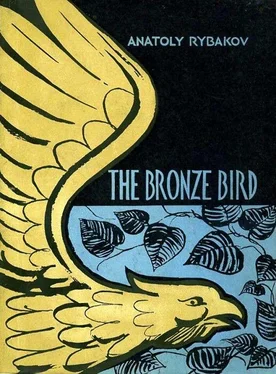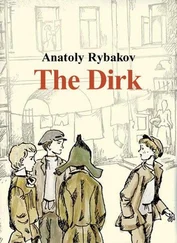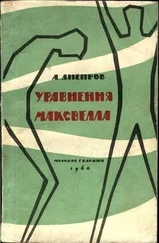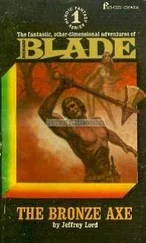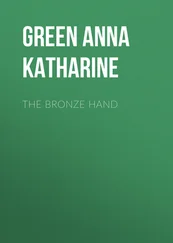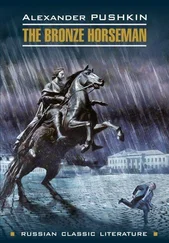Anatoly Rybakov - THE BRONZE BIRD
Здесь есть возможность читать онлайн «Anatoly Rybakov - THE BRONZE BIRD» весь текст электронной книги совершенно бесплатно (целиком полную версию без сокращений). В некоторых случаях можно слушать аудио, скачать через торрент в формате fb2 и присутствует краткое содержание. Город: Moscow, Год выпуска: 1956, Издательство: Foreign Languages Publishing House, Жанр: Детские приключения, Детектив, Исторические приключения, на английском языке. Описание произведения, (предисловие) а так же отзывы посетителей доступны на портале библиотеки ЛибКат.
- Название:THE BRONZE BIRD
- Автор:
- Издательство:Foreign Languages Publishing House
- Жанр:
- Год:1956
- Город:Moscow
- ISBN:нет данных
- Рейтинг книги:5 / 5. Голосов: 1
-
Избранное:Добавить в избранное
- Отзывы:
-
Ваша оценка:
- 100
- 1
- 2
- 3
- 4
- 5
THE BRONZE BIRD: краткое содержание, описание и аннотация
Предлагаем к чтению аннотацию, описание, краткое содержание или предисловие (зависит от того, что написал сам автор книги «THE BRONZE BIRD»). Если вы не нашли необходимую информацию о книге — напишите в комментариях, мы постараемся отыскать её.
THE BRONZE BIRD — читать онлайн бесплатно полную книгу (весь текст) целиком
Ниже представлен текст книги, разбитый по страницам. Система сохранения места последней прочитанной страницы, позволяет с удобством читать онлайн бесплатно книгу «THE BRONZE BIRD», без необходимости каждый раз заново искать на чём Вы остановились. Поставьте закладку, и сможете в любой момент перейти на страницу, на которой закончили чтение.
Интервал:
Закладка:
The boys cautiously opened the first door. They saw an empty hall with dilapidated, old-fashioned furniture scattered about haphazardly.
A chandelier with numerous pieces of glass hung from the ceiling. The high, arrow-shaped windows were partially boarded up and partially covered with something that looked like curtains. Through them the boys could see the park, the orchard, the river and the flag on the flag-pole in the camp. The sight of that small, sharp-cornered little flag fluttering lazily in the breeze heartened them. All thought of danger left their minds and it seemed to them that all this was just a fascinating game. Their spirits rose because now they could see everything, even their camp, while nobody could see them. Besides, they had reached the facade and that was something.
The hall had three doors-one through which the boys had entered, and one on either side. The side doors were locked and the boys had to return to the corridor and try the second door.
It led to yet another corridor, about as long as the second, but it only had a small round window and a small panel door on the right.
The boys opened the door and found two adjoining rooms. The first was empty. The second was locked. Looking through the keyhole, they saw an unmade bed, a night-table, a chest of drawers, a desk with a semicircular top and two armchairs. This was probably the old woman's bedroom.
In the room where the boys were now standing there was a stairwell. It was boarded up on all sides and looked like a huge box. Undoubtedly, it led to the loft. But the stairs began in the locked bedroom. The "countess," the boys concluded, had purposely chosen that room for her bedroom so that nobody could go up that staircase to the loft.
The boys tried to open the door of the bedroom, but it did not move. Through a slit it could be seen that it had two locks. They couldn't very well force the door open!
So Misha and Genka turned their attention to the boards around the stairwell. They barely held in place. A crowbar was all that was needed to wrench them free. But the boys had nothing with them that would serve the purpose. Misha told Genka to go down to the corridor on the ground floor and look for a crowbar.
"A piece of piping will do just as well," Misha said, "so long as it can be wedged between the boards. Only be careful and make no noise."
Genka soon returned with a pair of fire-place tongs and a big, broken flat-iron. The boys forced the tongs between the boards and, with the aid of the iron, tore off two of them.
The opening was big enough to let them through. They climbed the straight and fairly wide wooden staircase leading to the loft-a low, square room filled with ramshackle furniture. As in the corridor on the ground floor, a narrow passage had been made through the furniture to the windows. There were three windows-one on either side, which was glazed, and one in the middle, which was closed with shutters. The shutters were fastened with a simple, rusty hook. The boys flipped back the hook and opened the shutters. In the recess stood the bronze bird.
It had its back to them. It was about a metre high and the span of its wings was about a metre and a half.
The window gave an excellent view of the grounds and of all the approaches to the house.
Misha and Genka could see the camp clearly. They saw quite a few of the troop and it was perfectly obvious they were loafing about: some were strolling aimlessly, others, it seemed, were playing a game, but neither Misha nor Genka could tell what it was. They came together, then parted, then came together again. They looked ridiculous and funny.
But this was not the time to allow their attention to be diverted. They had to hurry if they wanted to learn the secret of the bronze bird.
As in the museum, Misha carefully put two fingers of his right hand on the bird's eyes and then pressed hard.
It worked! The bird's head folded back. So there was a hiding-place here as well!
Misha's guess had been correct.
He put his hand into the hiding-place, found a paper and drew it out.
It was a rolled-up drawing made on ordinary tracing-paper. The boys untied the ribbon and unfolded the drawing. On it were lines and figures.
There was no time to study it. They had to take it with them, make a copy and put it back before the "countess" returned.
Misha closed the bird and hooked the shutters. Then the boys went down to the first floor, replaced the boards on the stairwell and reached the servants' hall by way of the spiral staircase.
They closed the door and drove the nails back into the old holes so that the "countess" would not guess the door had been opened.
Chapter 56
THE DRAWING
Kit had finished the rice-water long ago and was now lying in bed, stretching languidly and screwing up his eyes with pleasure. It was dark and dusty in the hall. Short, narrow beams of sunlight lay across the floor with countless particles of dust swarming in them.
"Come with us, Slava," Misha said, giving a slight nod to show that all was well. "You, Bleater, stay here. I'll send somebody to relieve you."
"Send something to eat," Kit groaned.
"Do you want to get well or not?" the Bleater demanded angrily. "Can't you stay on a diet for one day, for just one single day?"
"No," Kit admitted with a sigh.
Leaving them to their argument, Misha, Genka and Slava went outside.
Forgetting their promise to send somebody to relieve the Bleater, they skirted round the camp, went across a field to a small thicket, where they sat down on the ground and unfolded the drawing.
The sheet of tracing-paper was about the size of foolscap. On the sides were letters giving the cardinal points of the compass: N. S. E. W.
Over the letter S was a picture of the facade of the manor. From it a straight line ran due north, then turned first to the north-west, then west and to the north again. Four trees were drawn where the line ended.
Over each section of the line was the figure 1, and beneath the angle of each turn was a figure giving the angle: 135°, 135° and 90°. Except for a drawing of the bronze bird in the right-hand corner, there was nothing else on the paper. The bird was only given as the family emblem.
The boys silently studied the drawing, then exchanged glances. They did not know what to believe. Had they found the secret? They were quite sure that the drawing would help to solve the riddle.
Genka was the first to break the silence. In a quiet tone of voice, as though everything went without saying, he declared:
"It's clear as daylight. We can go and look for the treasure whenever we like."
"Some of it is clear and some isn't," Slava noted. "We don't know what the unit giving the length of the sections stands for. What does the figure 1 mean?"
"Verst," Genka said with a condescending smile. "In the old days everything was given in versts."
"What about arshins and sazhens!" Slava said. "You make me laugh," Genka said. "If arshins or sazhens were meant, that would mean the treasure is close to the house. But you've got woods in these parts and they're exactly four versts from the house. If you like," Genka added with a shrug, "we can first check the thing in arshins and in sazhens. But when you hide something, you want to hide it well."
Misha suggested they stop arguing and reason logically. "Let's think this out logically," he said. "Now here's the situation: the house, the bronze bird, is the starting point. Do you agree?" Slava and Genka nodded.
"Well then," Misha continued, "from there we have to proceed due north for one verst."
"Or one arshin, sazhen, or perhaps a metre or a kilometre," Slava persisted.
"That's possible," Misha agreed, "although I think Genka's right: the figures stand for versts. Let's calculate the thing in versts, conditionally of course."
Читать дальшеИнтервал:
Закладка:
Похожие книги на «THE BRONZE BIRD»
Представляем Вашему вниманию похожие книги на «THE BRONZE BIRD» списком для выбора. Мы отобрали схожую по названию и смыслу литературу в надежде предоставить читателям больше вариантов отыскать новые, интересные, ещё непрочитанные произведения.
Обсуждение, отзывы о книге «THE BRONZE BIRD» и просто собственные мнения читателей. Оставьте ваши комментарии, напишите, что Вы думаете о произведении, его смысле или главных героях. Укажите что конкретно понравилось, а что нет, и почему Вы так считаете.
